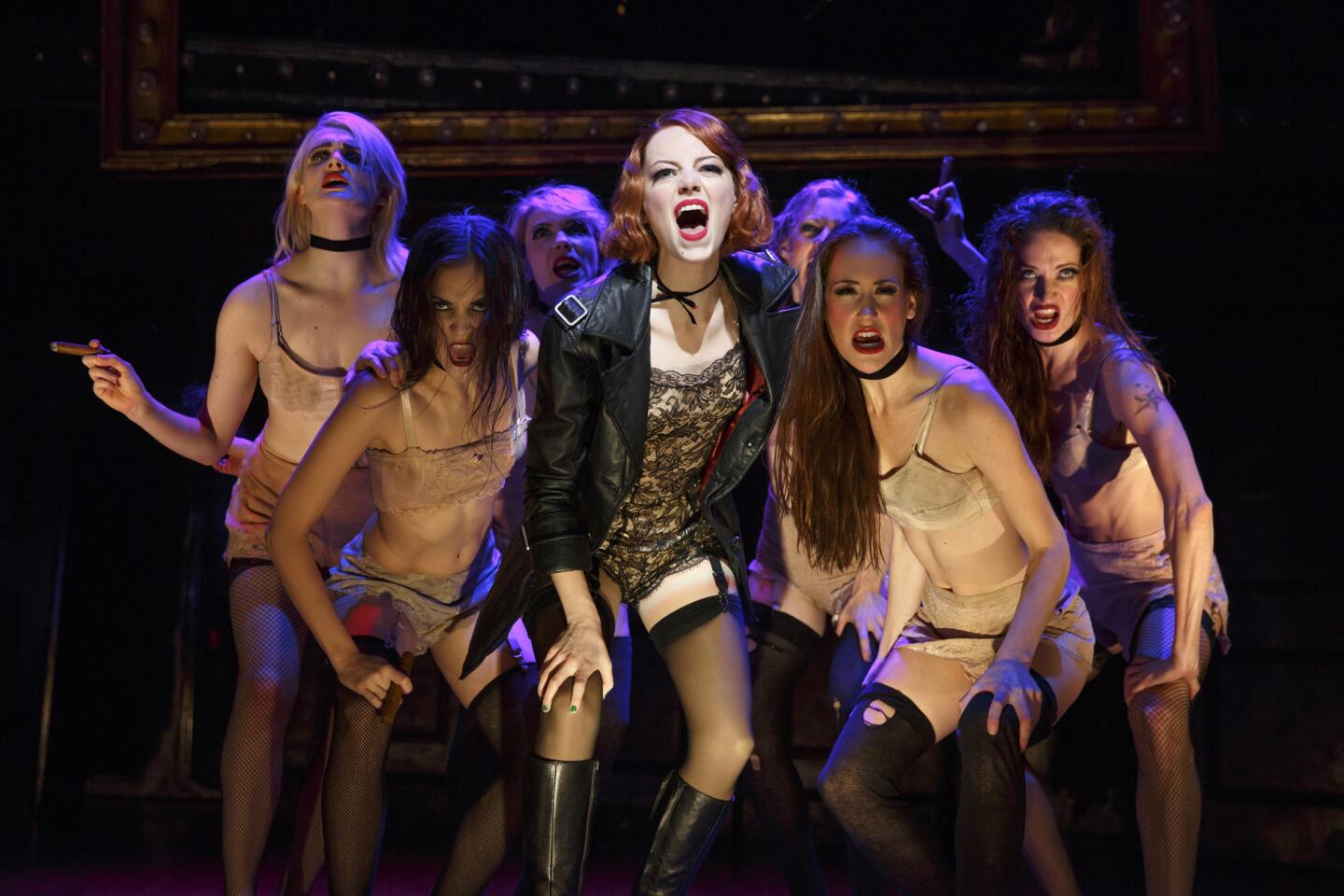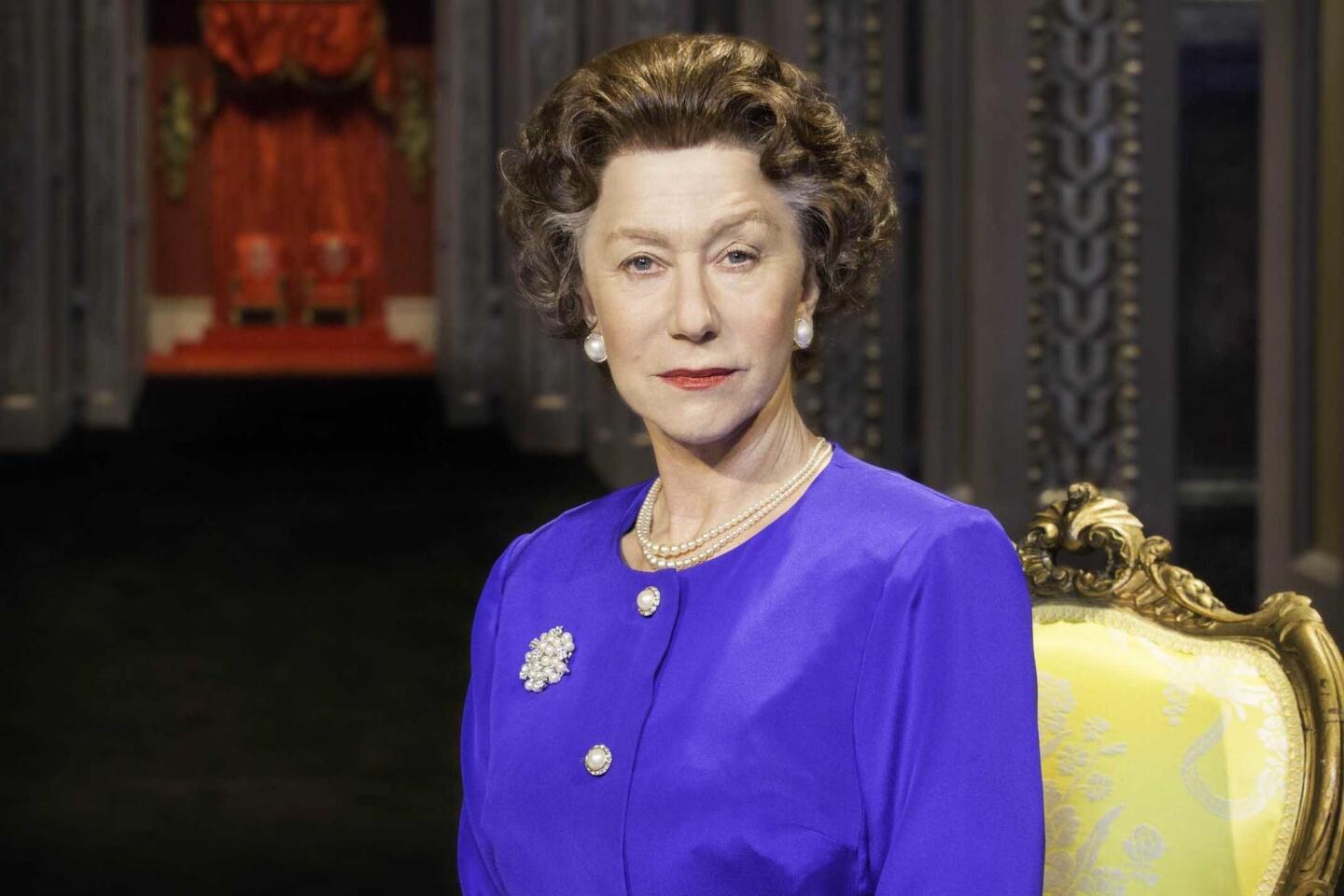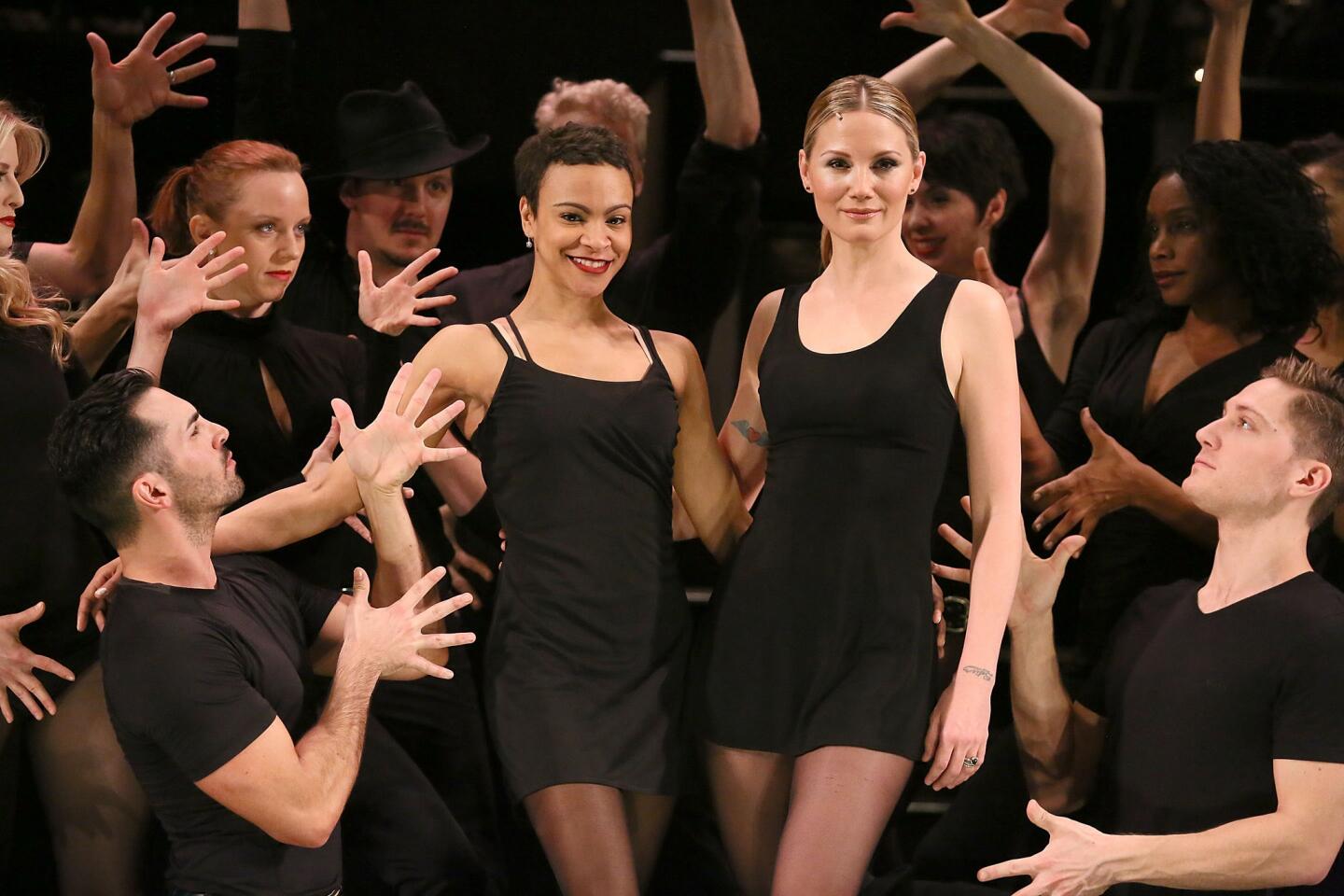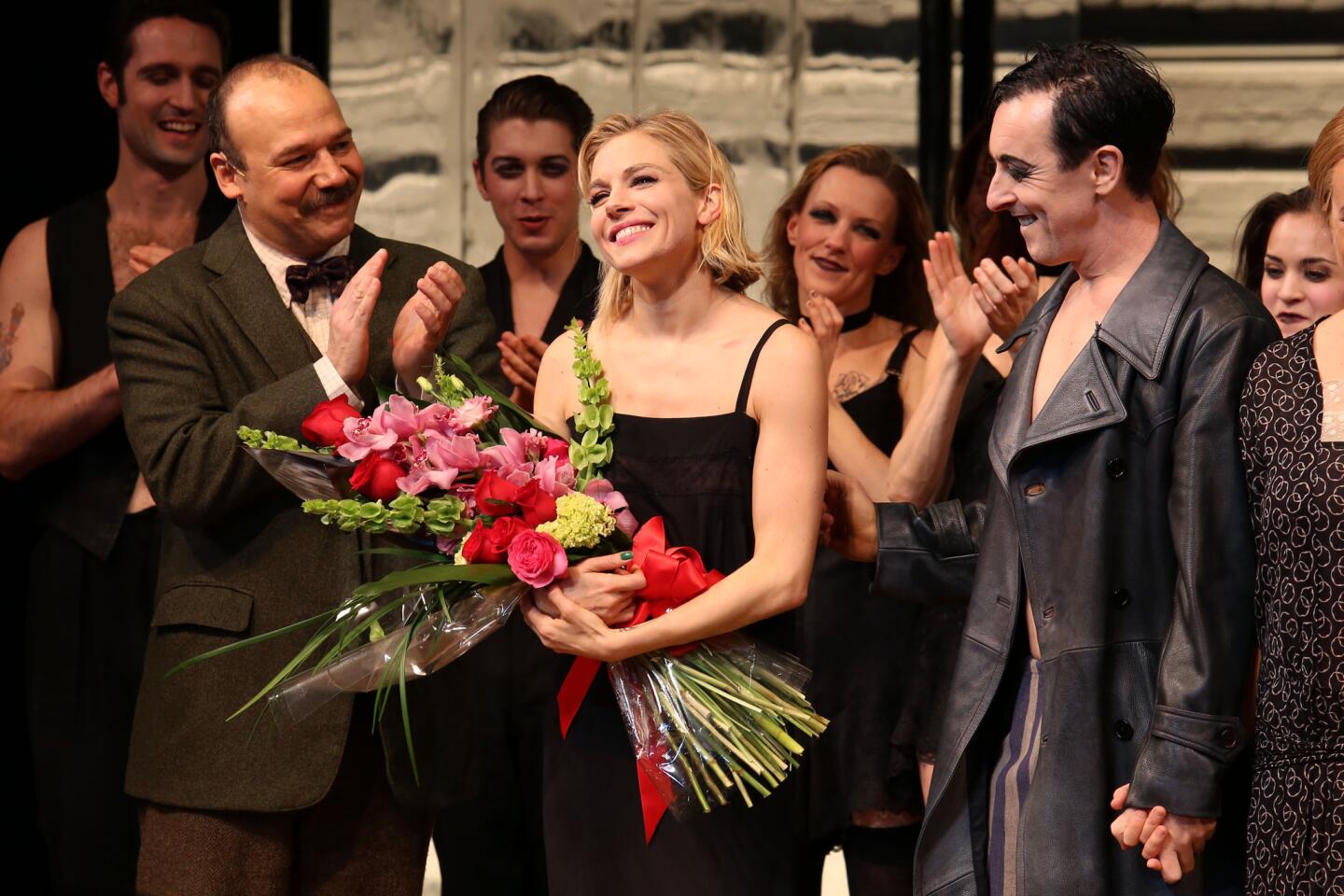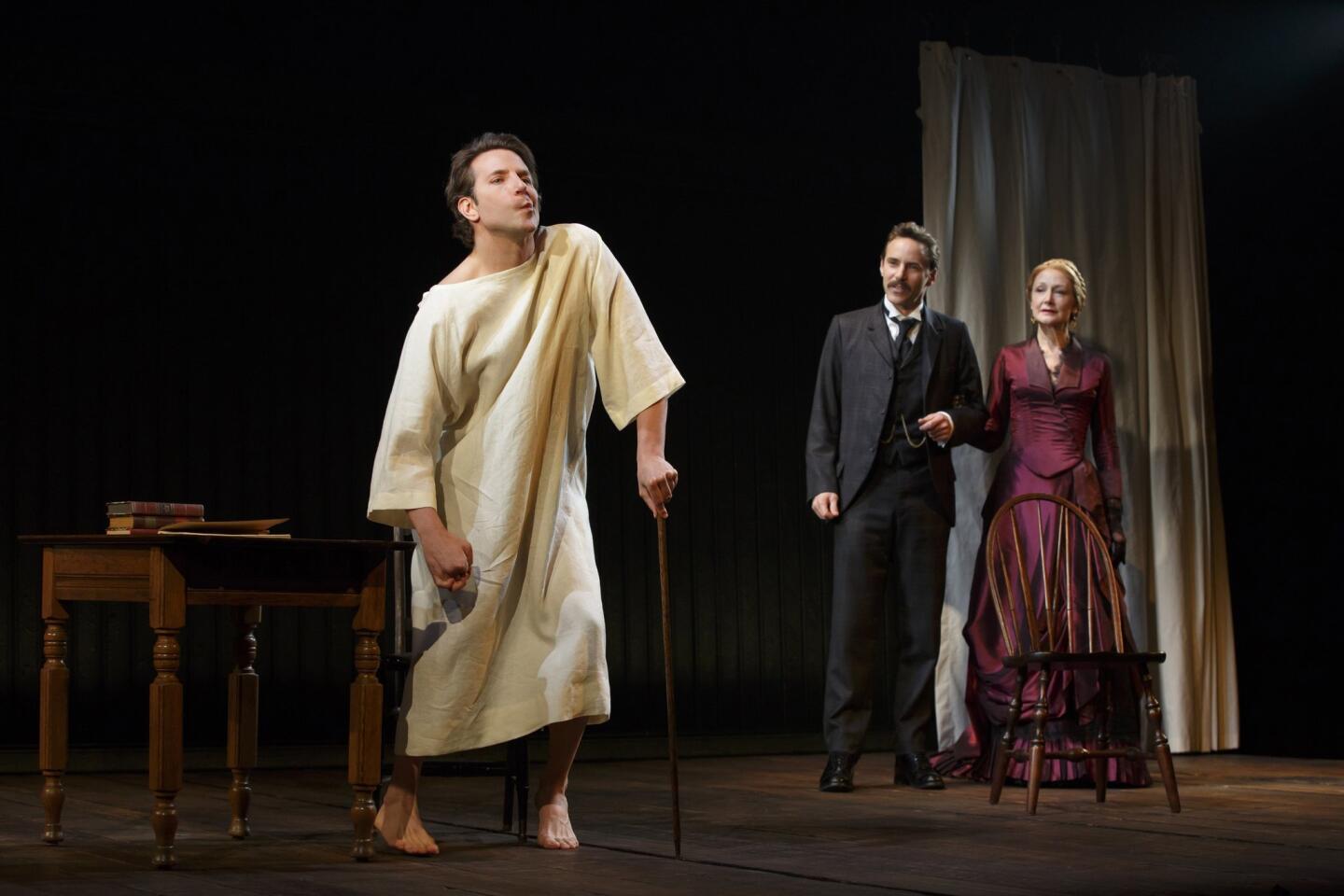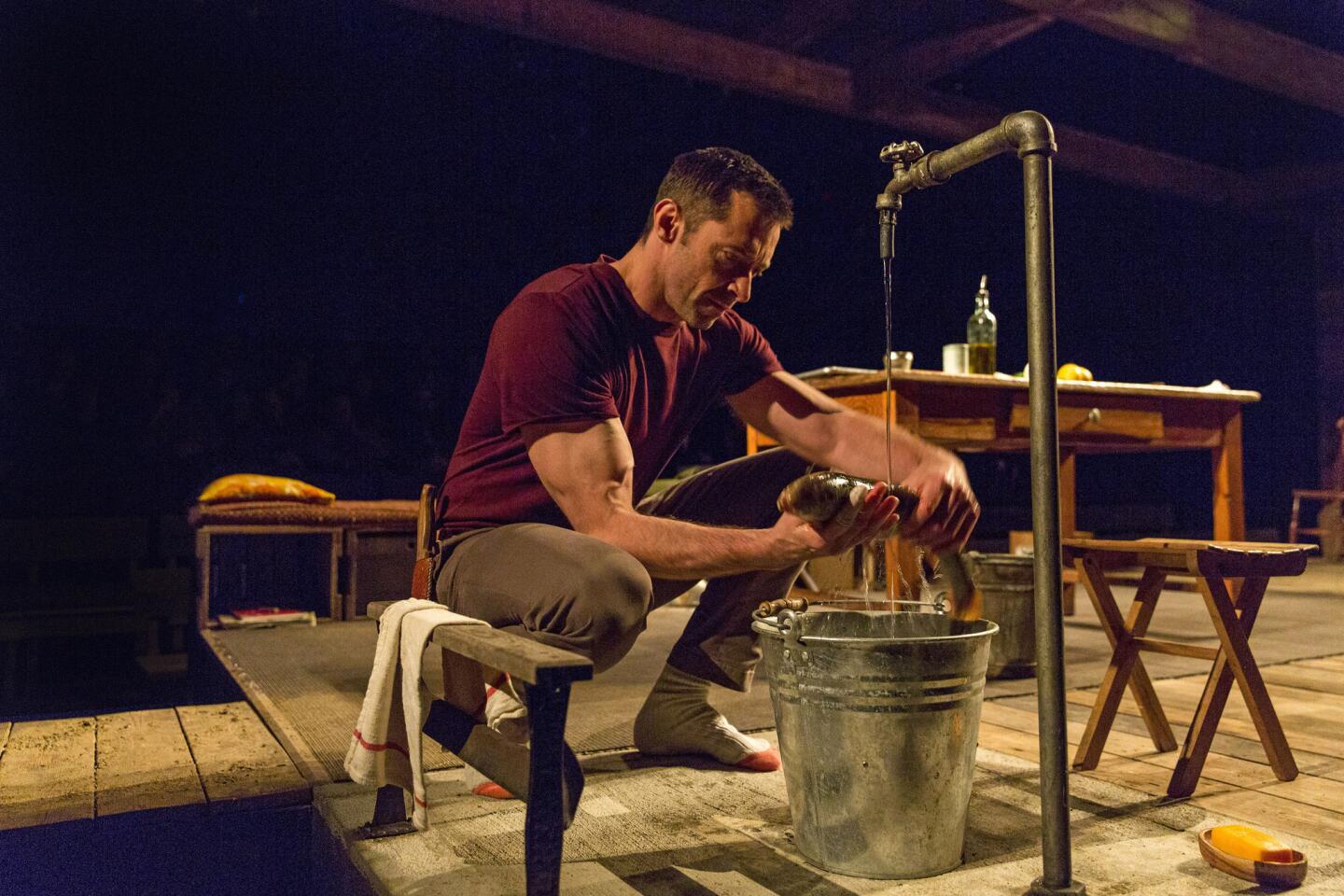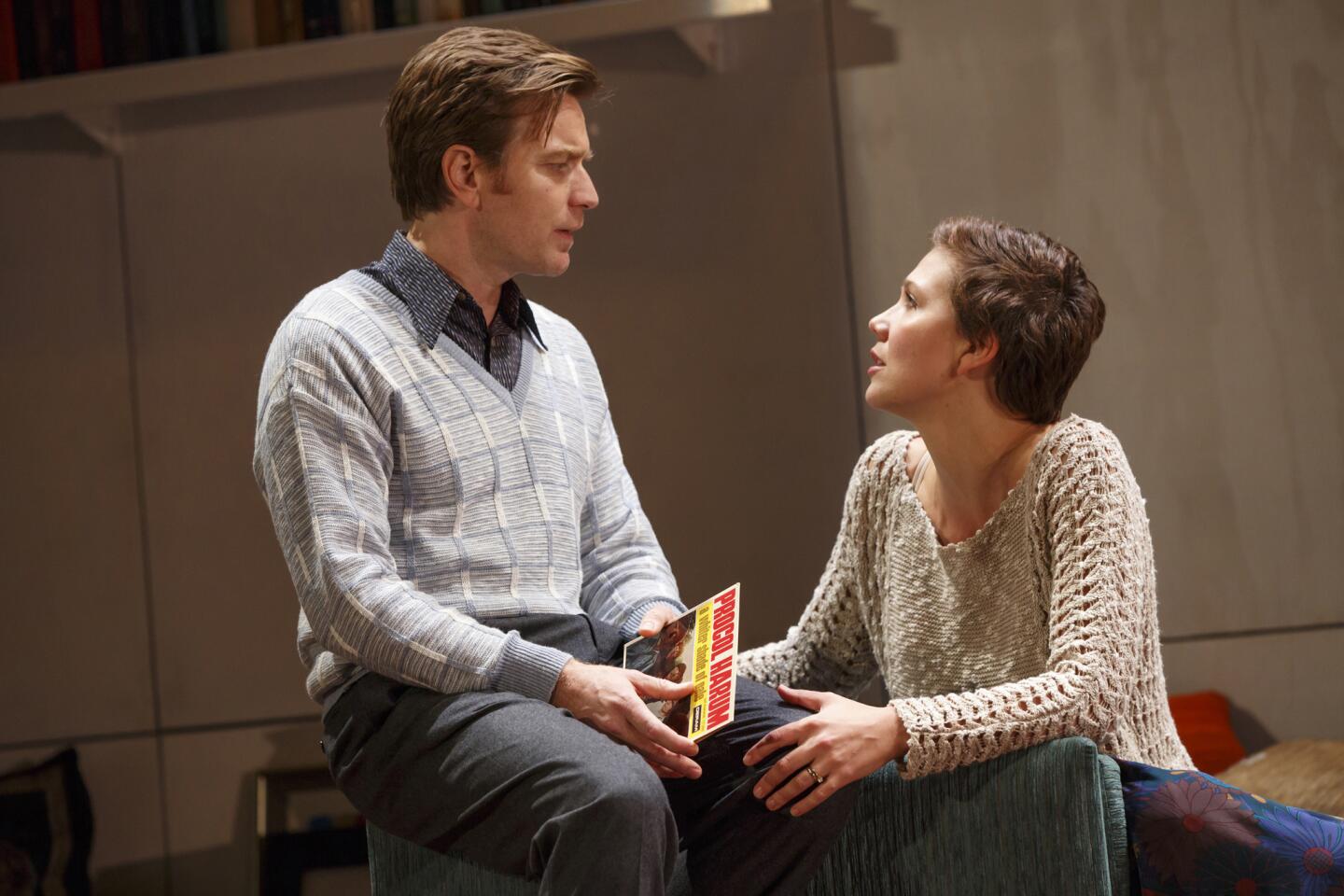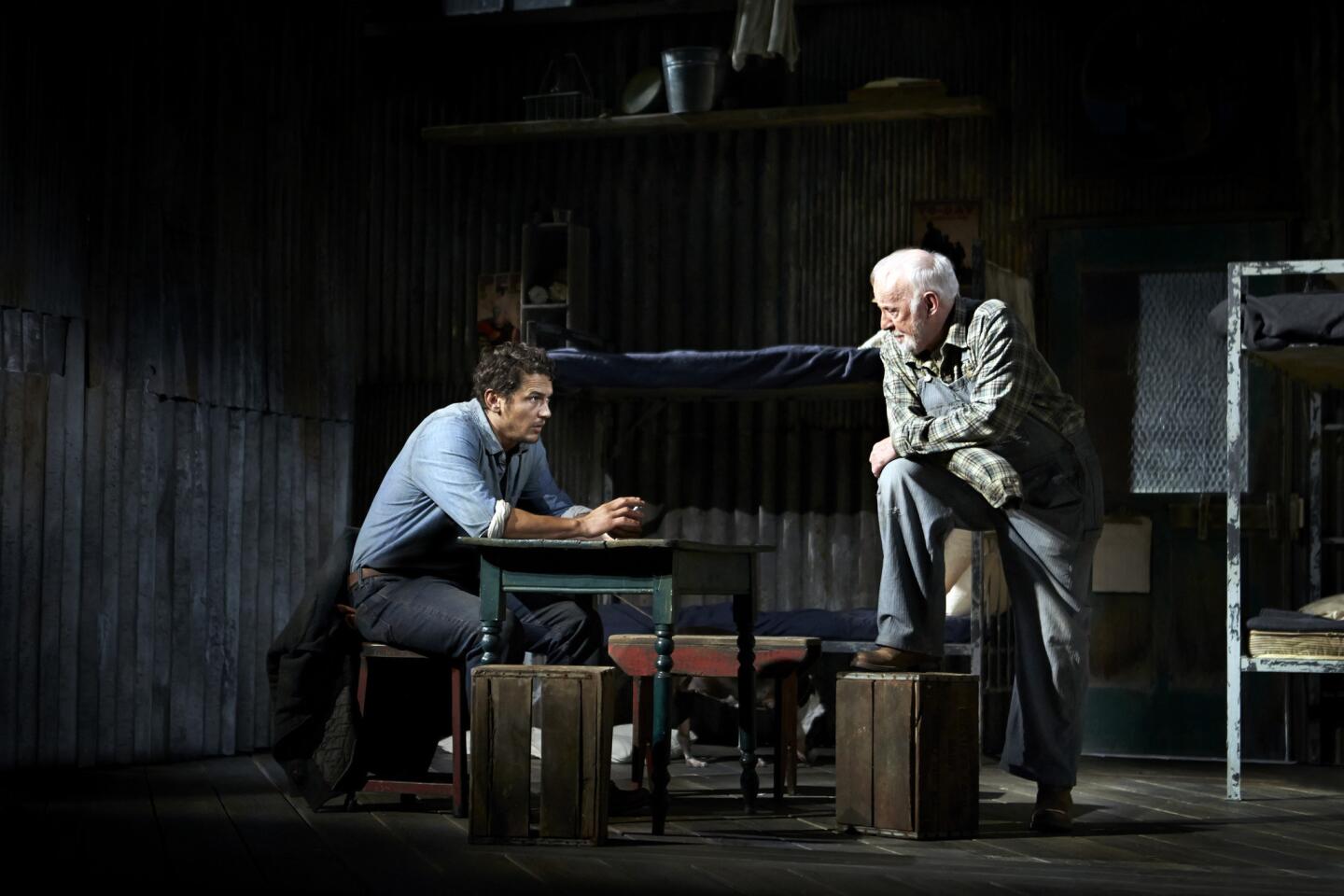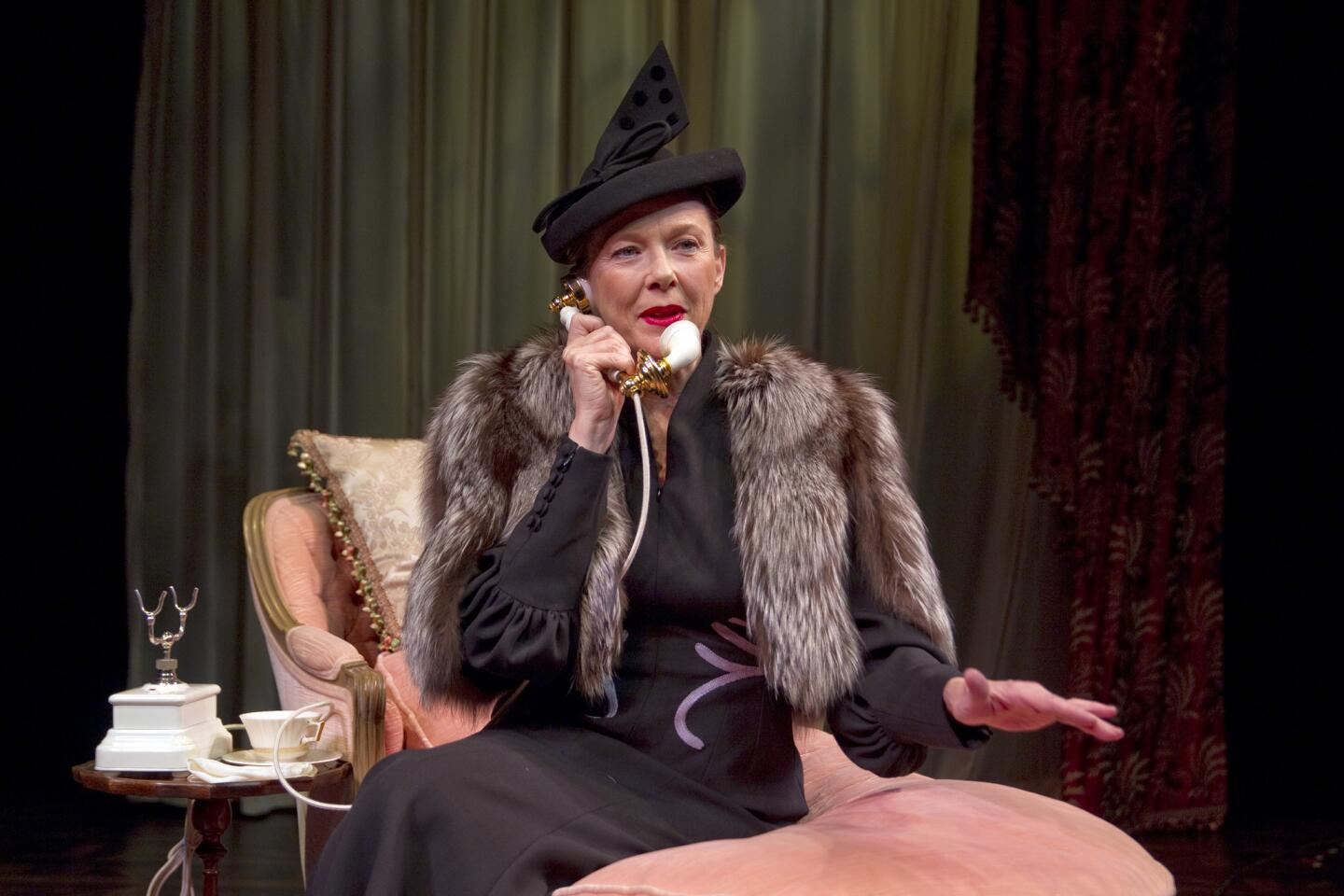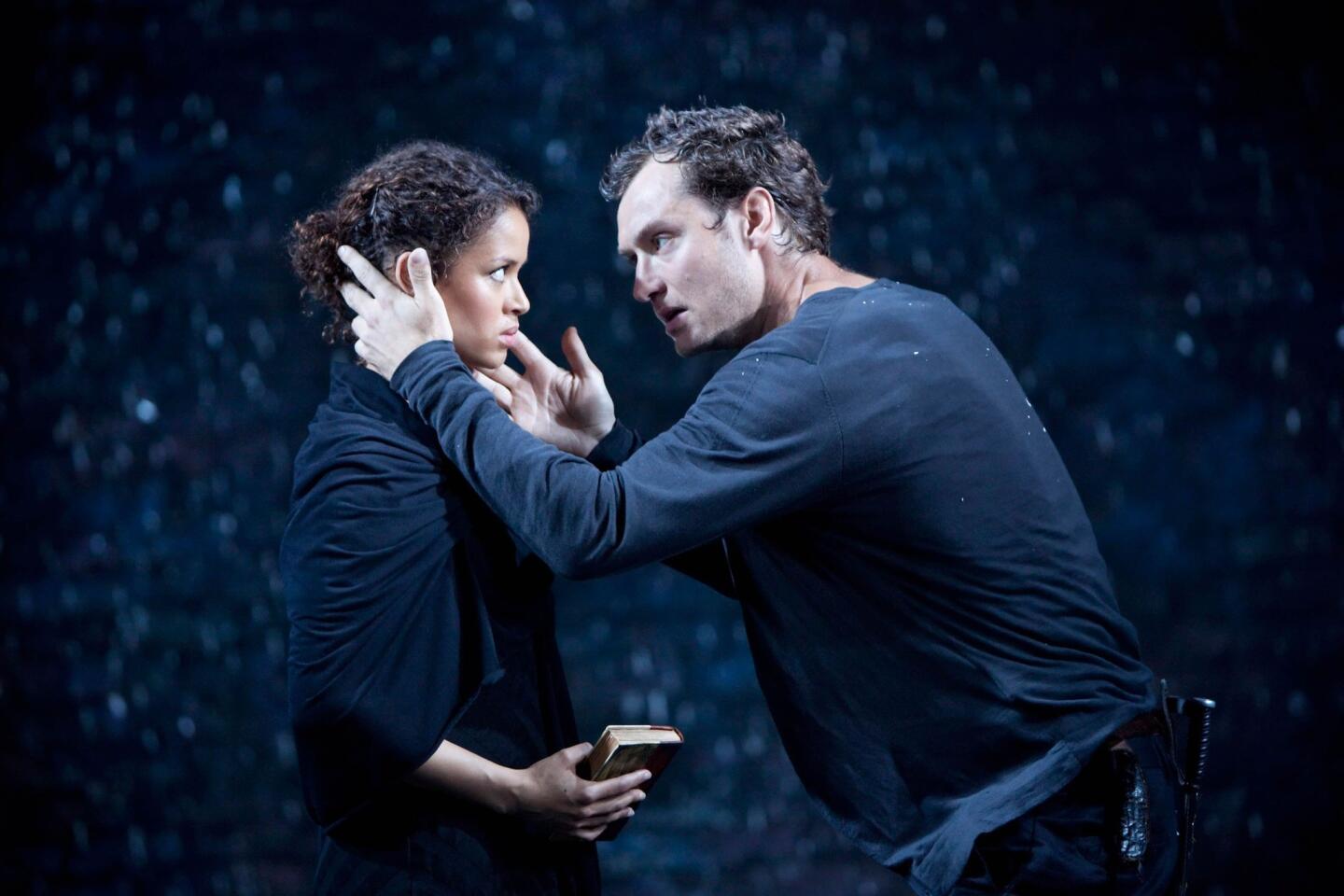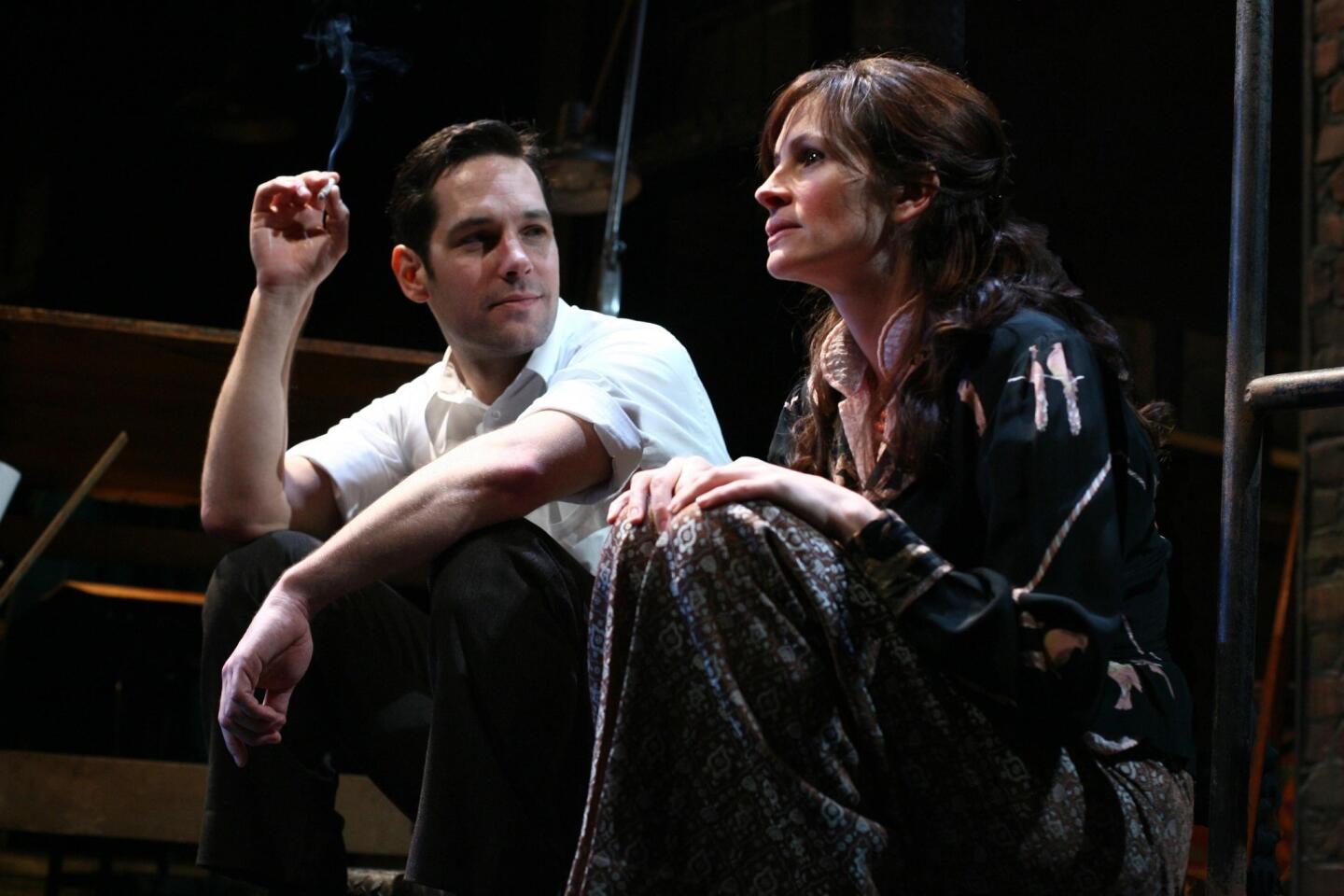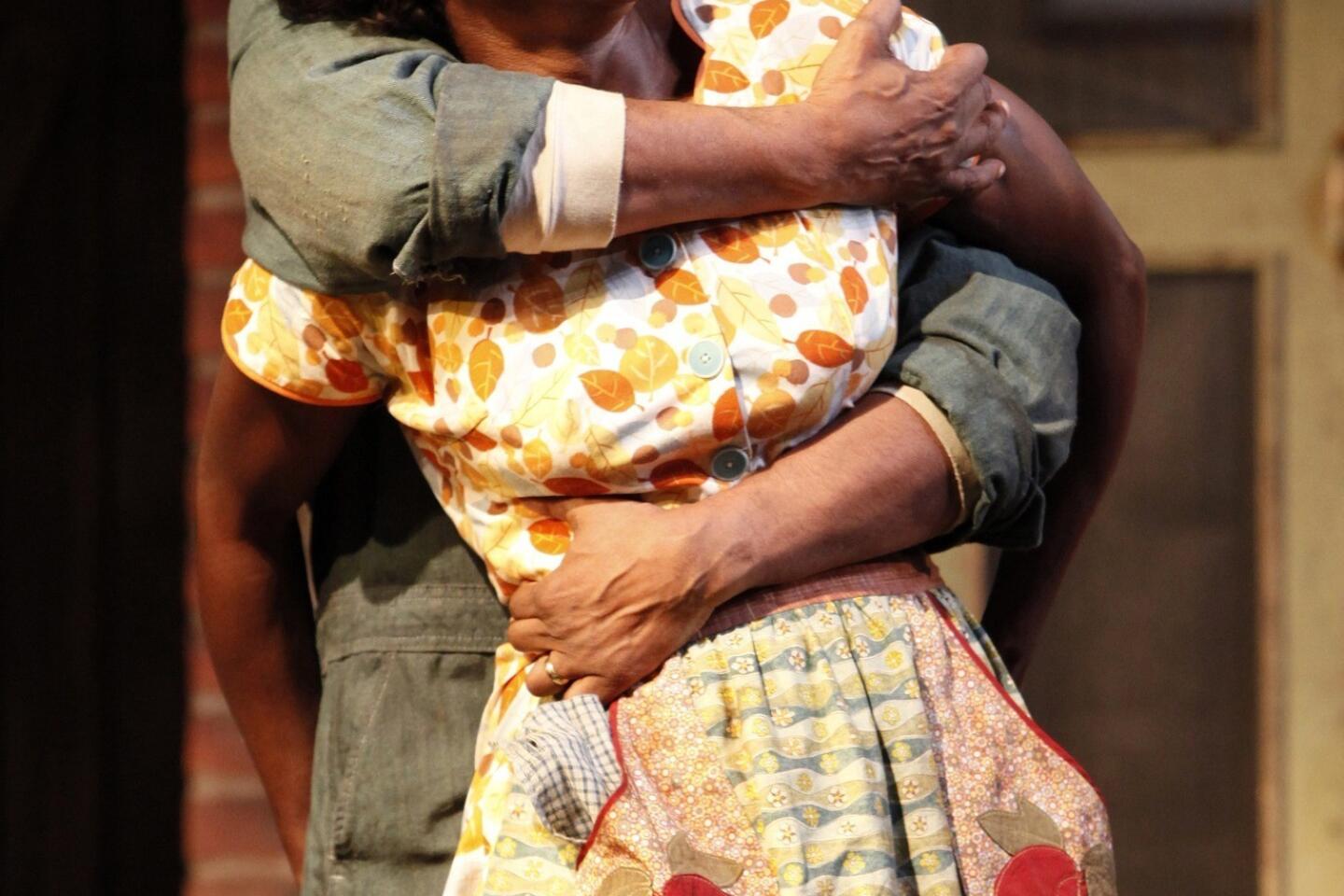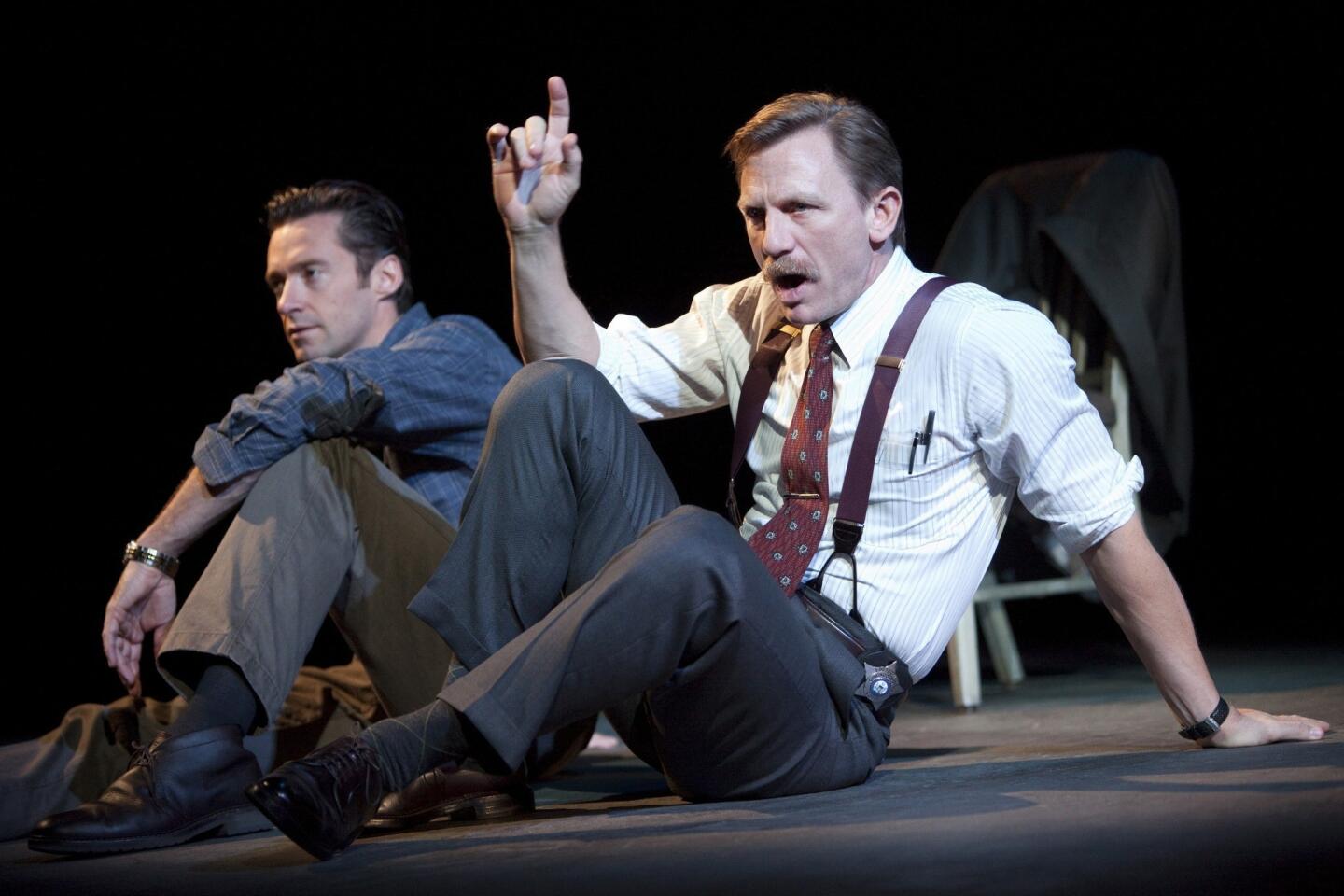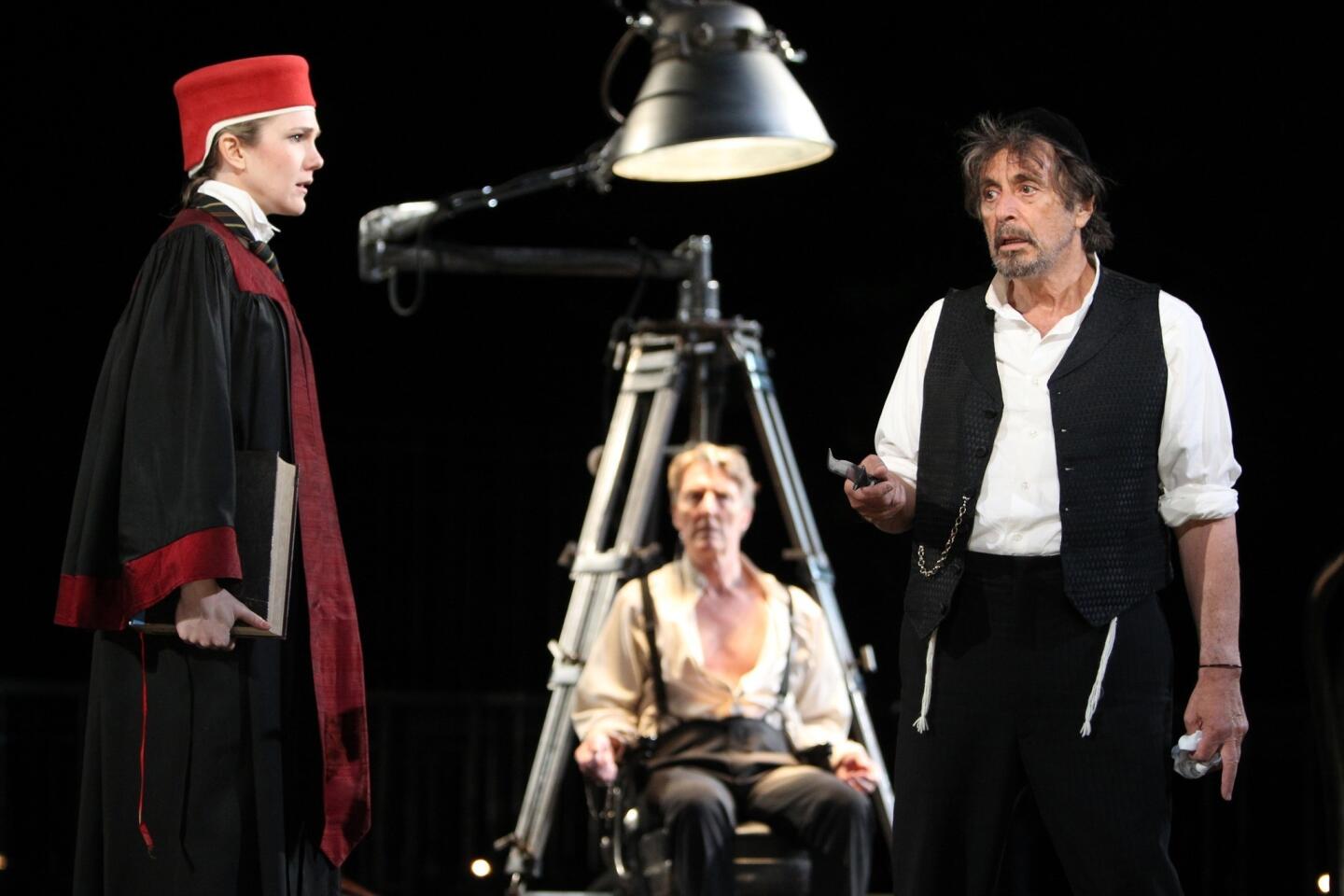Review: Bette Midler makes âIâll Eat You Lastâ fun
NEW YORK â Enthroned on her couch in Beverly Hills, Hollywood superagent Sue Mengers did not go gentle into that good night but, instead, gossiped and tattled against the dying of the light.
Well, sheâs back holding court in her modest (by neighborhood standards, anyway) palace, which has been relocated to Broadwayâs Booth Theatre. Here Bette Midler, draped in a turquoise caftan like a sedentary 1980s queen too tired even for browsing on Rodeo Drive, delivers Mengersâ ribald wit and agentry wisdom in John Loganâs âIâll Eat You Last: A Chat With Sue Mengers.â
âChatâ is the key word in this title. Logan, the author of the Tony Award-winning play âRed,â hasnât so much written a drama as created a talky vehicle for Midler that exploits the synergy between her brassy humor and the bawdy sass of the woman whose client list (Barbra Streisand, Gene Hackman, Ali MacGraw, Faye Dunaway) reads like a whoâs who of 1970s cinema.
PHOTOS: Hollywood stars on stage
Midler, a galvanizing stage presence even in a role that barely requires her to move anything but her mouth, makes it fun. Who wouldnât want to hang out with her while she dishes the dirt on yesterdayâs fabulous and famous in a modified version of her old Sophie Tucker style of patter?
But this 85-minute monologue, directed by Joe Mantello, doesnât ask the ever-Divine Miss M to dig deep into Mengersâ character or to make connections between her difficult past (her German Jewish familyâs rough transition to the U.S., the suicide of her father) and the boundless chutzpah that brought her for a time so much pathbreaking success as a female agent able to outmaneuver most of her male competitors.
Rather, it invites Midler to don a blond wig and tinted glasses and perform the persona that made Mengers the most entertaining dinner party host in this unusually glittering company town.
âLike I always say: If you canât say anything nice about someone, come sit by me,â Midler rasps, borrowing a line that sounds tailor-made for Mengers, in a show that just wants to provoke some mildly mischievous laughs.
STORY: âIâll Eat You Lastâ chronicles Sue Mengersâ old Hollywood
The frame of the play is rather simple: Lounging on a sofa with plumes of cigarette and marijuana smoke braiding overhead, Mengers is anxiously expecting a phone call from Streisand, who helped make her one of the most powerful agents in the business. Itâs 1981, and Streisandâs lawyers have just fired Mengers, who is now steeling herself for the ânothing personalâ call from her old friend and long-standing professional trump card.
âWhat Barbra did was open the window for me,â Mengers explains. âOnce I was inside, it was up to me. So I went to work. I talked to everyone. I was persuasive, I was funny. Most of all, I was ferocious. To me ânoâ always meant âmaybe.ââ
While waiting for the phone to ring, she fires off one celebrity anecdote after the next, drawing lessons along the way on the proper management of talent. (âRule No. 1: Never blow a deal on money,â etc.)
The names that are dropped will no doubt titillate the affluent AARP crowd (Broadwayâs backbone), but the script often feels like a back issue of People magazine.
Thereâs a tale of marital menace involving MacGraw and Steve McQueen, a punch line invoking Jackie Gleason and James Coco and mention of a furtive date between Candice Bergen and Henry Kissinger.
CHEAT SHEET: Spring Arts Preview
Dying to hear how Hackman got his Oscar-winning role in âThe French Connectionâ or how the financial negotiations played out for Dunawayâs casting in âChinatownâ? The long wait is over.
âIâll Eat You Lastâ is a highly packaged theatrical offering, more marketed than written. Indeed, thereâs more insight into Mengers and the changing nature of the agentry business in Peter Biskindâs 2000 Vanity Fair account of her rise from William Morris secretary to unstoppable Hollywood power broker, followed by the sudden fall that was somewhat softened by the prominence of her much-coveted salon.
Vanity Fair editor Graydon Carter happens to be a lead producer on the show, and the play, which has about the depth of a magazine feature, could use a round of his editing. Yet Midler coaxes you into lowering your artistic expectations and just enjoying this experience for what it is: a Broadway bonbon.
This is what they call personality acting, the prerogative of stars of a certain magnitude. There arenât that many of Midlerâs caliber around anymore, the kind of performers who can charge a room with laughter before even a joke has passed their lips. Talent no longer has to be proved at this stage of the game. Fans, grateful for the years of delight, are content to bask in glow of happy memories rekindled by the snap of a voice or the whisk of a hand gesture.
Mengersâ languor limits Midlerâs natural vivacity. Fewer calories have ever been burned by an actor in a solo performance. (A member of the audience is summoned to the stage to fetch Mengers her pot and then something to drink from a nearby table â she just refuses to leave her seat.)
But Midlerâs comic audacity sustains the illusion that something is actually happening. Itâs not, though most Broadway theatergoers wonât care a bit.
More to Read
The biggest entertainment stories
Get our big stories about Hollywood, film, television, music, arts, culture and more right in your inbox as soon as they publish.
You may occasionally receive promotional content from the Los Angeles Times.
